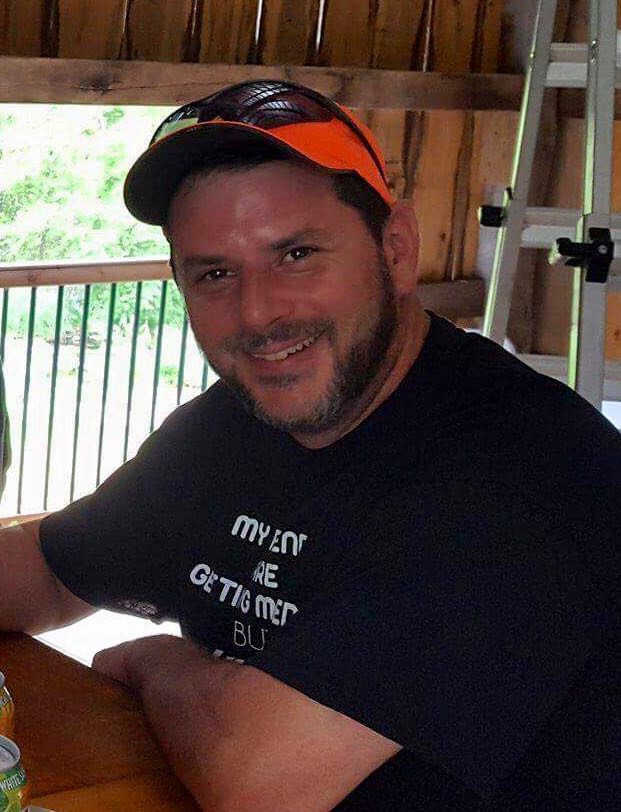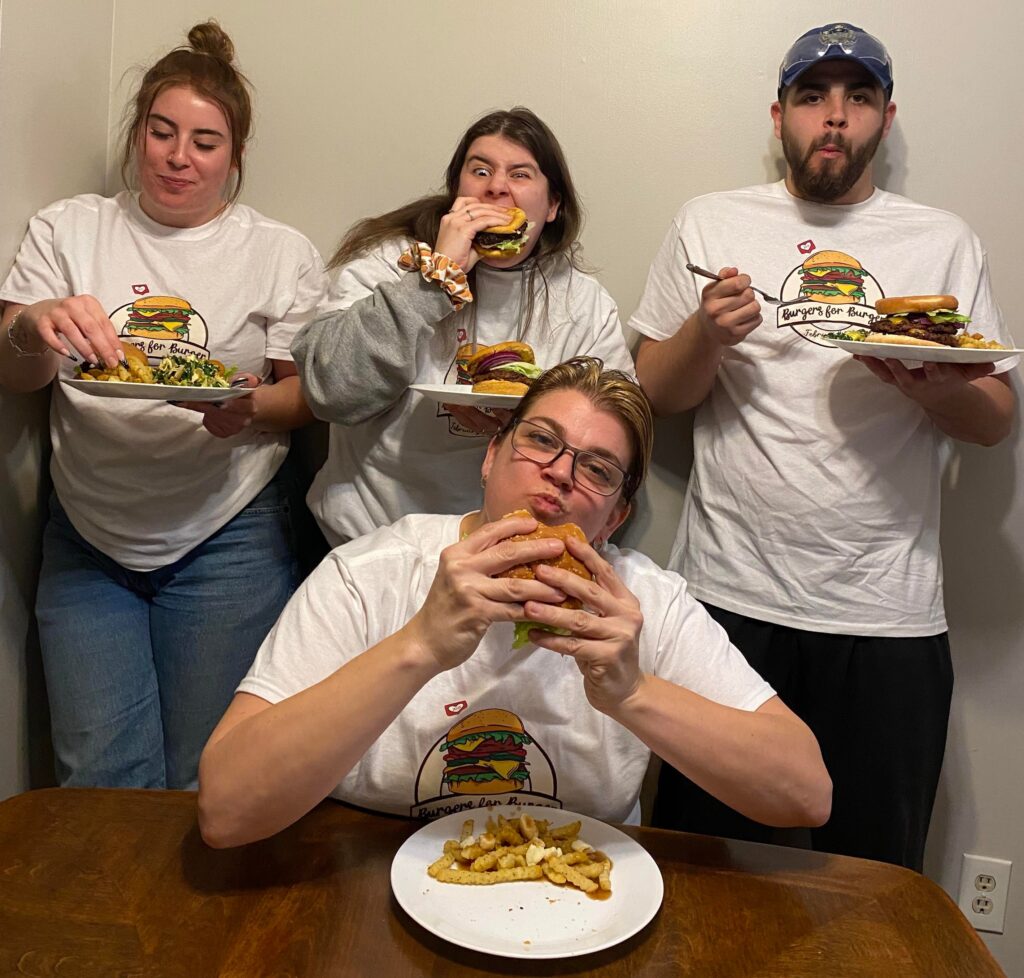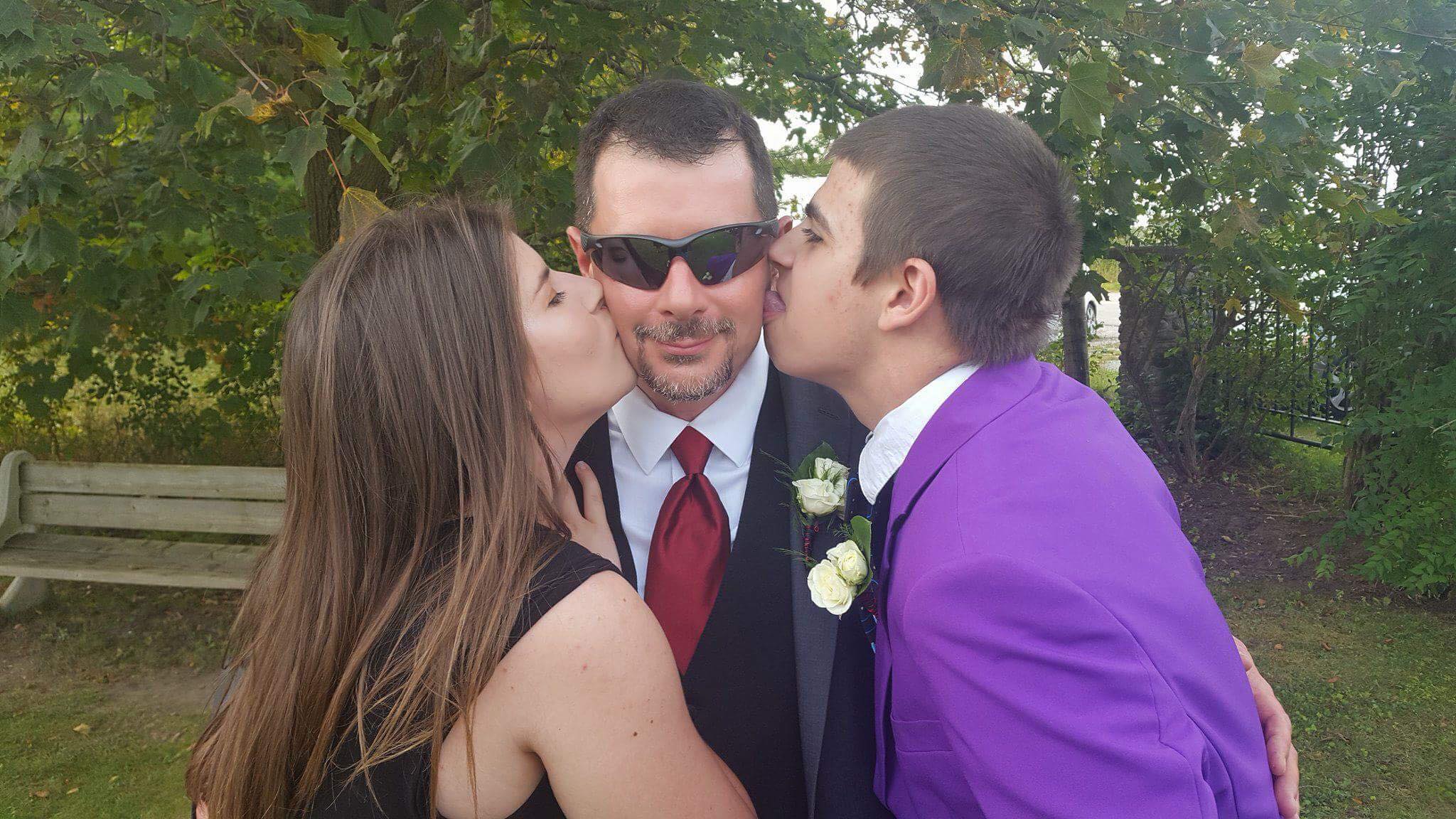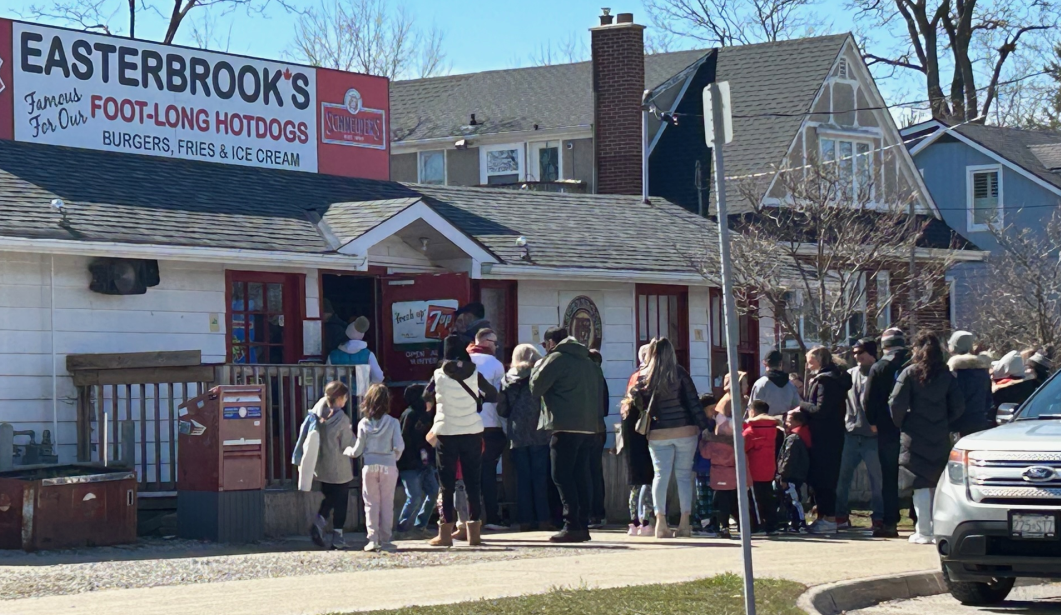Michelle Byrne’s “Burgers for Burger” movement started after her husband Chris’ death by suicide five years ago on Feb. 21, as their family’s way of remembering Chris, who Michelle called “Burger” after his favourite meal, but it has grown into a community-wide message of mental health and suicide prevention awareness.
Chris’ death was a tragedy by any standard. He was a teddy bear of a man whose hidden childhood trauma and resulting mental health challenges made everyday life so painful it was too much for him to bear. But the legacy he has left, of immense love, has inspired his family to spread that message and encourage families to normalize discussing mental health concerns.
Michelle and Chris met “a lifetime ago,” at 20 years old. A 25-year relationship filled with the usual ups and downs, as well as some pretty incredible times: a lost custody battle with his high school girlfriend resulting in a 12-year separation from his son; a tough decision to put their first child up for adoption with an amazing reunion 19 years later, bringing both families together; a wedding followed by two beautiful children; then a work injury that resulted in the discovery of the progressive arthritis in his spine that left Chris without the ability to work for 14 years, leading to Michelle going back to school for a new career as a massage therapist.
Michelle smiles when she describes their life together; “It could have been a Jerry Springer [story]…but it turned out to be an Oprah.” There were tough times but they got through them together.
Because of his back injury, Chris became the primary caregiver to his children, a role he was very dedicated to. This was a somewhat unusual arrangement at the time, and while Chris loved being at home with his kids, he was the only dad at the school drop-off, and felt a loss of identity.
Still, Chris was the neighbourhood “daddy bear,” to whom all the kids would come to get a bicycle fixed or show off a precious new belonging. He was known for giving “the best” hugs, left love notes for Michelle around the house, and turned up at her workplace with picnic lunches. As teenagers, any friends of his kids who needed a place to stay would be welcomed by Chris because, he would say, “I know what it’s like to not know where you’re going to sleep at night.”
After the kids had grown up and needed him less, he started a new job. However, the night shifts he had been given left him feeling isolated from his family, as he would be sleeping or at work when everyone else was at home.

Then, one day, Chris “ripped the band-aid off,” says Michelle. He posted what she describes as a manifesto on Facebook, talking about his alcoholism, how his family deserved better than what he could give and that he needed/wanted to be a better person. This was all a surprise to her — she knew he drank, but not the extent of his drinking, and she found out about the Facebook post only after friends began texting and asking if everything was okay.
She immediately called Chris, to whom she had been married for 20 years at that point. He detailed childhood trauma, that years before he had found himself homeless, events that she had only known about in broad strokes previously. He explained that he had been drinking more and more to help numb his thoughts and he knew he was going to lose it all if he continued.
Chris committed himself to recovery. He spoke to his parents, gave up alcohol, attended Alcoholics Anonymous meetings, accessed support resources, read self-help books about childhood trauma.
He worked so hard, but Michelle thinks it was all too much for Chris to process. His anxiety kept him expecting the worst, always. He would go to a birthday party, for example, thinking it was an intervention to “get rid of him,” says Michelle. He felt that his past made him a damaged person, that he was not good enough for his family. He would sit with Michelle and say, “This isn’t getting better,” but he so wanted to be there, with her and their family. He wanted help, he wanted it to get better, but was also very hard on himself.
He was trying.
Chris had been sober for six months when he died by suicide.
Or “when he succumbed to his illness,” to use a description from one of the teens living with Michelle and Chris, who also experienced a family death by suicide (they had seven people living in their three-bedroom townhouse at the time of his death, such was the size of Chris’ heart).
In the immediate aftermath, Chris’ impact on other people was apparent: at the hospital, Michelle says, they filled the “family room” very fast. They were then given another room, which “also got very full, very fast.” And then the waiting room also filled up. When hospital staff noted that the rooms were meant only for family, one friend piped up, “This is his family, no one is leaving.”
Even in death he was a giving man. His donated organs were able to help the lives of five recipients. Chris was “so brave,” Michelle says, for telling his loved ones about his struggles, for trying to work through them, and for seeking help. And no one would doubt the love Chris had for Michelle, his family, and his friends who became family. But, as Michelle so aptly puts it, “He loved us so much, but the pain and struggle were so much more.”
The kindness and love that Chris spread around him came back to his family after his death. “Everyone showed up,” Michelle remembers, with support, love, and food for the family.
But the stigma around suicide is still immense. Such that by the time the second anniversary of his death was coming up, his daughter was upset that no one outside the family would mention his name or talk about him; she felt like he was a taboo subject. The kids felt that Chris was being forgotten.
And so “Burgers for Burger” began: the family asked friends to join them in Chris’ favourite meal (and nickname) on Feb. 21, and share photos of their burgers with the hashtag #burgerforburgers on social media.

Over the last couple of years, it has grown. In this fifth year, a friend printed Burgers for Burger t-shirts for the family to wear. A talented family friend baked and sold cupcakes shaped like burgers, and fry-shaped cookies from her home business, Sierra’s Sweets and Treats, with 20% of proceeds going to Youth Mental Health Canada in Chris’ memory.
The goal of Burgers for Burger is now two-fold. Of course, Michelle wants her kids to know that Chris was loved and that people remember him. But they want to encourage mental health conversations to happen. They want people to sit down with their families at dinner, “and talk, see how they are doing.” Michelle thinks that Chris might have opened up earlier, had there been less stigma around mental health challenges and talk of suicide, and wants to help normalize these conversations so that others might be helped earlier and with success.
While the official Burgers for Burger date is Feb. 21, Michelle doesn’t want to see people thinking about mental health only on specific dates; people need to be talking year-round. So tonight, if you can, sit down with your family, whether blood relation or chosen family, think about Michelle’s Burger, and ask them how they are doing. How they are REALLY doing.


